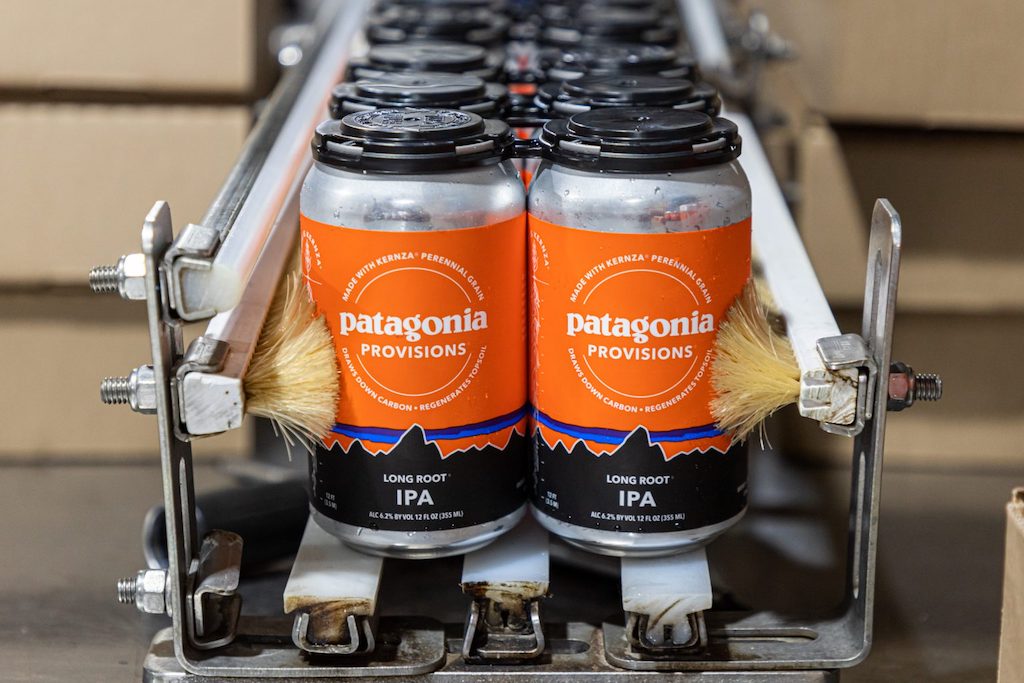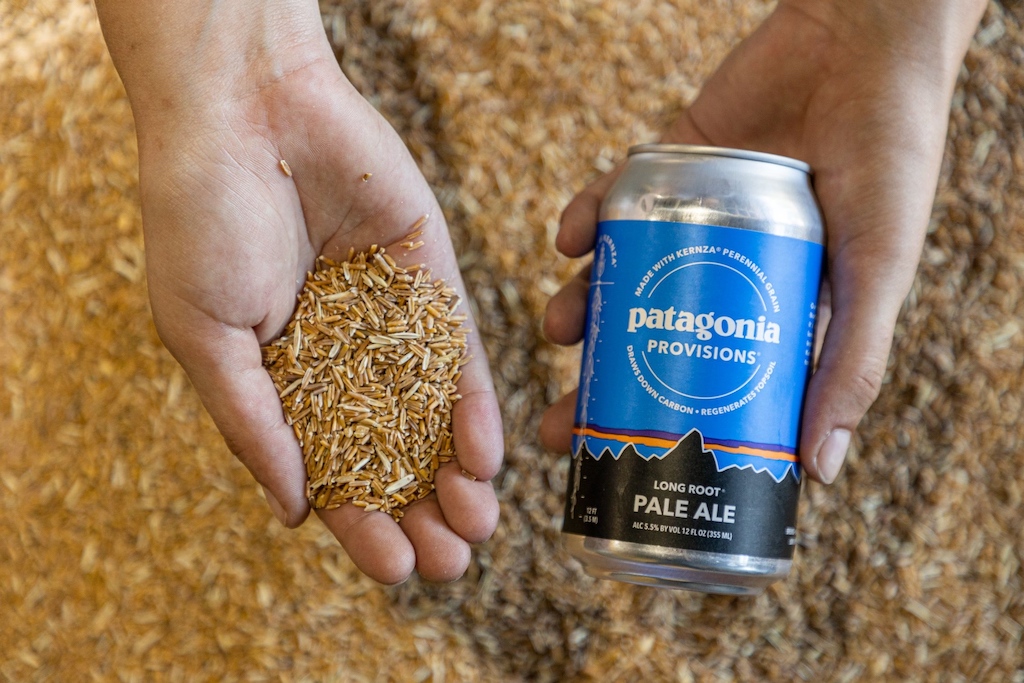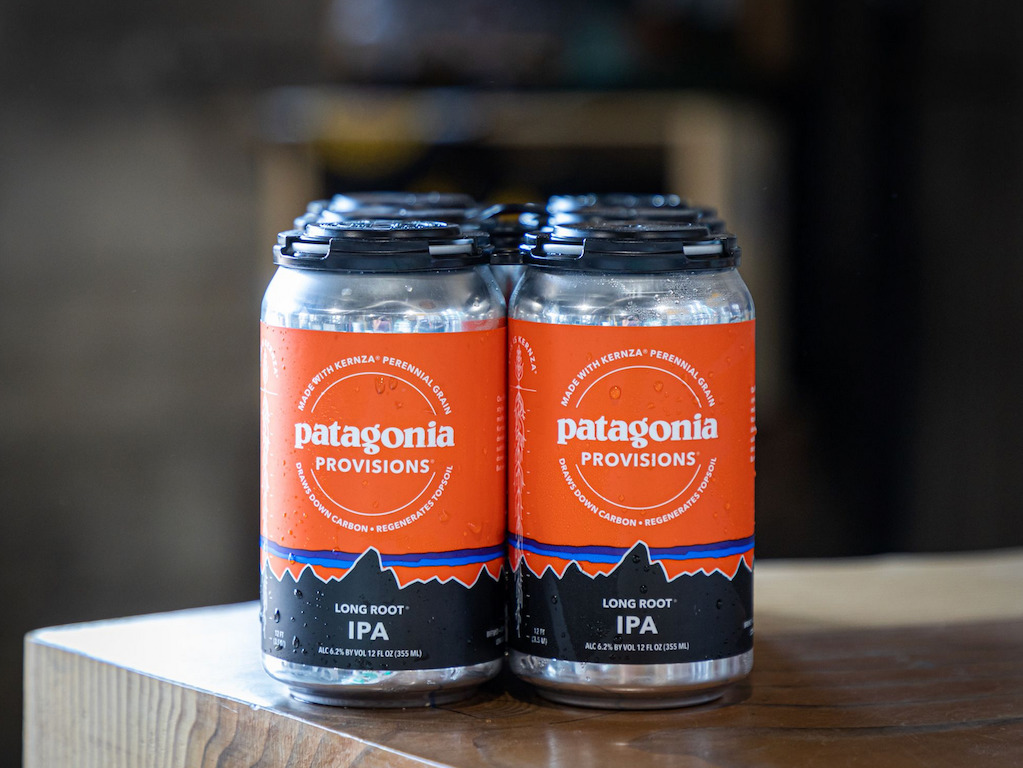3 Mins Read
You can now drink beer made from wheat grown using regenerative farming practices, which helps boost carbon sequestration. Patagonia, the popular outdoor apparel brand, is brewing it.
Launched in partnership with Portland, Oregon-based Hopworks Urban Brewery (HUB), Patagonia’s new line of beer is made with organically grown ingredients and Kernza, a perennial wheat grain grown using regenerative agriculture practices—which helps to restore soil biodiversity and carbon sequestration.
Patagonia Provisions Long Root IPA

Patagonia Provisions new Long Root IPA is a traditional West Coast style IPA at 6.2% ABV. Described as a vibrant and light IPA and boasting flavours of citrus and evergreen hops with a “subtle bitterness and malty aroma”, the beers are now available across the West Coast in retail stores, select Whole Foods locations, and at Trader Joe’s in Northern California.
It’s the third beer line released by Patagonia Provisions, the outdoor apparel brand’s regenerative food venture created back in 2012. All of the company’s beer is made with Kernza, the perennial grain that is grown using organic and regenerative practices, a breakthrough that Patagonia achieved back in 2016 after a research project with The Land Institute in Kansas.
This means that it can be grown without any pesticides or fertilisers and with less water compared to traditional wheat production, all the while helping to remove carbon from the atmosphere because organic and regenerative agriculture helps to restore soil biodiversity.

Patagonia Provisions partner, HUB, is a family-owned business and the first brewery in the Pacific Northwest to achieve B Corp status. The firm uses organic malts and locally sourced organic hops to produce its beers and ciders that are distributed across Oregon and the Northwest in the US.
Related: How can upcycled mushrooms help make beers vegan-friendly?
‘Beer is the perfect vehicle’ to promote regenerative farming
Commenting on the release of the new beer, Birgit Cameron, who co-founded Patagonia Provisions with Patagonia founding father Yvon Chouinard, said: “Through Wes Jackson’s pioneering work at The Land Institute, Patagonia Provisions has been able to help bring this important regenerative perennial grain to the forefront with the hope that others take notice and implement similar practices.”
“Beer is the perfect vehicle for this and a delicious byproduct of our collaborative work in regenerative agricultural practices,” she added. Provisions is currently headed by Cameron and is operating out of its Sausalito, California-based headquarters.

In a blog post explaining why Provisions was launched, Chouinard says the mission is to change the way food is currently being produced, in a way that “builds soil health, ensures animal welfare and protects agricultural workers.”
“To me, Provisions is more than just another business venture. It’s a matter of human survival,” he writes. “Regenerative organic farming practices yield large crops while building healthier soil, which can draw down and store more greenhouse gases.”
As consumer awareness about the footprint of food grows, the food industry has begun to clean up its practices and paid more attention to the sustainability of its supply chains. Regenerative farming has become the cornerstone of Nestlé’s latest push, with the Swiss food conglomerate pledging $1.2 billion to transition its supply chain and committing to pay farmers a premium for regeneratively-grown crops.
All images courtesy of Patagonia Provisions.




